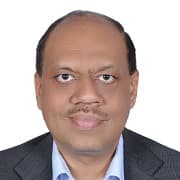
2026 Agenda
Pre-conference welcoming drinks reception
- 17:00 - 19:00
Welcome to the Argus Global Base Oils Conference drinks reception
Location: Please contact the Argus team.
Conference day one
Argus 5K Hyde Park Fun Run
- 07.15
Argus 5k Hyde Park Fun Run
Returning by popular demand, join Argus for a morning 5k fun run around the scenic Hyde Park and get those endorphins flowing. Join industry peers with a likeminded approach to fitness for an exciting informal networking opportunity away from the boardroom. NEW FOR 2025 – the fun run will have multiple pace groups ensuring beginners through to 5k pros can enjoy an active start to the morning.
Base Oils Complimentary Workshop
- 08:00 - 08.45
Morning registration and networking breakfast
- 08.45 - 09.15
NEW — Base oils pricing workshop: Market dynamics and methodologies
A highly interactive session designed to meet strong industry demand for clarity on base oils pricing.
- Ask the experts — Engage directly with Argus analysts on pricing methodology, benchmarks and regional trends.
- Live polls and Q&A — Participate in real-time polls and an open Q&A to explore market challenges and strategies.
- Pricing lifecycle explained — Understand how Argus gathers, verifies and publishes pricing data, and what drives price movements.
Speakers Include:

Guo Harn Hong
Global Lead Base OilsArgus- 09.15 - 10.00
NEW — Technical workshop: The Development Lifecycle of a Lubricant
Sponsored by Lubrizol
A comprehensive deep dive into the formulation, testing and commercialisation of engine lubricants, led by experts from specialty chemicals maker Lubrizol.
Speakers Include:

David Growney
Technology Deployment ManagerLubrizol
Joanne Jones
Senior Director TechnologyLubrizol
Main conference begins
- 10:00 - 10:10
Chairperson’s opening remarks and interactive voting and objective setting
Use this time to share your pressing questions and set some objectives for what you’d like to learn during this focus day! We will revisit these at the conclusion of the day.
Speaker:

Guo Harn Hong
Global Lead Base OilsArgus- 10:10 - 10.35
Navigating global trade policy: How to stand strong in an uncertain and changing policy environment
- How are US tariffs, reshoring strategies and global conflicts reshaping base oil trade flows, supply chains and overall oil availability?
- What are the implications of evolving trade routes, freight disruptions and blending hubs such as Singapore, the UAE and Amsterdam-Rotterdam-Antwerp on market stability and regional de-risking strategies?
- How might future geopolitical tensions and policy shifts — such as expanded tariffs, bilateral deals and repeals — impact global commodity pricing and trade dynamics?
Speaker:

Marc Ostwald
Chief Economist & Global StrategistADM Investor Services International
Morning coffee break and women in base oils network
- 10:35 - 11:15
Morning networking break
- 10.35 - 11.10
NEW — Business card wall station open
Kickstart your networking experience with our interactive business card wall
Morning sessions resume
- 11.10 - 12.00
Keynote panel: A conversation with leading global base oils producers
- What opportunities are available to base oils producers in today’s changing market, and what macro-trends are driving the industry?
- What has the industry learned from recent years’ turbulent geopolitical and macroeconomic trade environments and how can this be utilised to form a more secure industry in the future?
- What sustainability and decarbonisation strategies are being implemented across the globe — is it more important to follow national policy and industry association guidelines, or to pursue individual company goals?
Speakers include:

Luyen Vo
Senior Manager, Global Technical Sales & Business DevelopmentChevron Base Oils
Seungho Seok
Managing DirectorS-OIL Europe
Arjun Lad
Strategic Accounts, Commercial Excellence & Marketing DirectorNynas- 12.00 - 12.30
Argus global market overview: Refining realities — navigating capacity gaps and market shifts
The base oils market faces critical questions about supply security and regional dynamics owing to a looming demand deficit and uncertainties surrounding investment in refining.
- Who will still be refining base oils in 5-10 years and how will regional dynamics in the US, Asia-Pacific and Europe reshape the global supply map?
- How credible are announced investments into Group III base oils capacity and will they be enough to close the projected demand gap?
- What does the future hold for Group I and II base oils under International Maritime Organisation (IMO) regulations, and where will heavy base stocks come from as bright stock capacity declines?
Speakers:

Gabriella Twining
Global Editor - Base OilsArgus
John Dietrich
Deputy Editor - Base OilsArgus
Julio Viana
Market Reporter - Base OilsArgus
Lunch break and industry spotlight station opens
- 12:30 - 13.30
Lunch break
- 12.30 - 13.30
NEW — Speaker and industry spotlight station opens
Location: Networking lounge and photo station
Engage with our speakers and industry experts in a relaxed setting. News agencies will be conducting short interviews and Argus will be on hand to facilitate introductions with key personnel.
Capture the moment at our photo station — an easy, low-cost way to build visibility and share your presence at the event. Great for social media, press coverage and networking follow-ups.
OEM and Maritime perspectives
- 13:30 - 14:00
Original equipment manufacturer (OEM) panel: Electrification and hybrid vehicles — lubricant demand in transition
- How are OEM approvals and lubricant specifications influencing base oil use?
- What implications are slowing electric vehicle (EV) take up and growth in hybrids having on lubricant formulations?
- How are OEMs aligning lubricant performance with evolving powertrain technologies and sustainability targets?
Speakers include:

Nikhil Agarwal
Managing DirectorGlobestar Energy FZE
Irina Vinogradova
Senior Manager - ConsultingArgus- 14:00 - 14.30
Navigating the seas: Base oils for maritime lubrication in a changing world
- How is demand for base oils and lubricants being reshaped by evolving marine engine technologies such as ammonia and LNG engines, and fuel regulations including IMO 2020?
- What challenges do marine lubricant blenders face in sourcing Group I base oils amid refinery closures, and how viable are Group II and III or re-refined alternatives for maritime applications?
- What role do re-refined base oils (RRBOs) and low-sulphur, high-saturate formulations play in meeting environmental, social and governance (ESG) goals and operational performance in the shipping sector?
Speakers include:

Ed Schouwstra
Global Commercial Manager EMEAStolt Tankers
Afternoon break
- 14.30 - 15.15
Afternoon coffee and networking break
- 14.30 - 15.15
NEW — Networking station: Meet-up corners for the base oils community
Grab a coffee and head to the dedicated networking zone in the exhibition hall. Connect with peers working in the same segment of the base oils value chain.
Meeting zone 1
Meeting zone 2
Meeting zone 3
Meeting zone 4
Group I and II base oils
Group III and gas-to-liquids (GTL) base oils
RRBOs and sustainability
Base oil logistics and storage
Explore market trends, pricing dynamics and supply chain challenges for solvent-refined and hydroprocessed base oils.
Dive into discussions on premium base oils, GTL innovations and OEM specifications.
Talk circular economy, re-refining technologies and ESG strategies.
Focus on infrastructure, shipping, bulk storage and regional distribution.
Ideal for refiners, traders and lubricant blenders.
Perfect for producers, additive companies, and high-performance lubricant formulators.
Hub for sustainability leads, re-refiners and policy influences.
Great for logistics providers, port authorities and supply chain managers.
Policy and technology spotlight
- 15.15 - 16.00
Policy shifts and certification challenges: Navigating PC-12, Euro 7 and GF-8
- How will upcoming regulations such as PC-12, Euro 7 and GF-8 impact base oil formulation and demand, and what role do Group II+ and III+ base oils play in meeting these standards?
- What are the timelines and readiness across regions?
- What challenges and opportunities do these policy shifts create for base oil producers, additive suppliers and OEMs?
Speakers:

Shailendra Gokhale
Managing PartnerRosefield DAA International Consultancy LLP
David Wright
Director GeneralUKLA- 16.00 - 16.20
Optimised asset management via ISO 55000 and ICML 55 standards
- What are the key features and goals of these frameworks?
- How does the ICML 55 system manage all physical assets related to lubrication, and how does it add value to the organization and its stakeholders?
- How does the ICML 55 framework provide a positive effect on other standards and goals, linked to: quality & safety, ESG, energy and CO₂ reduction, reliability management, maintainability and cost/profit balance?
Speakers Include:

Dennis Eijdenberg
Technical ManagerInterflon- 16.20 - 16.50
Data centres, robotics and new applications for base oils
Exploring how emerging technologies are transforming the base oils landscape.
- What innovations in production, blending and refining — including smart manufacturing and artificial intelligence — are reshaping the base oils industry?
- How are data centres, robotics and high-technology environments influencing demand for specialised lubricants and greases?
- What new application areas are emerging for base oils — such as EVs, smart manufacturing and high-speed automation — and how can producers adapt to meet evolving performance standards?
Moderator:

Valentina Serra-Holm
Head of Engineered Fluid SolutionsPerstorp AB
Conference day one concludes and networking drinks reception
- 16.50 - 17:00
Chairperson's closing remarks
Speaker:

Guo Harn Hong
Global Lead Base OilsArgus- 17.00 - 17:05
Drinks welcome from Lubrizol
- 17:00 - 18.30
Networking drinks reception sponsored by Lubrizol
Conference day two
Morning networking and breakfast roundtable
- 08.00 - 09:00
Networking breakfast
Conference day 2 begins
- 09:00 - 09:05
Chairperson's opening remarks
Speaker:

Gabriella Twining
Global Editor - Base OilsArgus- 09:05 - 09.45
Keynote blenders panel: What is driving formulation choices?
- How are sustainability goals and regulatory pressures influencing base oil selection and additive strategies?
- What role do Group II and III, re-refined and high-viscosity index base oils play in balancing cost, performance and supply reliability?
- How are blenders adapting formulations to meet evolving OEM specifications and global market demands?

Bhupinder Singh
Director of Global Lubes and Oils Business DevelopmentbluechemGROUP
Akshay Tiwari
Global Base Oil Procurement DirectorBP Castrol
Alex Jones
Director Engine Oils and FuelsLubrizol
Dr Ernie Henderson
PresidentK&E Petroleum- 09.45 - 10.30
NEW — Panel discussion: Market transparency and risk management in base oils: building collaborative tools for the future
- What mechanisms and risk management strategies can help buyers and suppliers navigate today’s dynamic base oils market?
- How can industry stakeholders work together to develop and support a paper market for base oils?
- What role should producers, trading companies, and refiners play in fostering more transparent and adaptive market structures?

Frédéric Vazzoler
Managing Director TSMS Base OilsTotalEnergies Supply & Marketing
Paul Wightman
Senior Director Research and Product DevelopmentCME Group
Nikhil Agarwal
Managing DirectorGlobestar Energy FZE
Rob Mcleod
Head of Price Risk SolutionsHartree Partners
Galina Kurasheva
TraderDYM Resources
Morning break
- 10.30 - 11.00
Morning networking break
Sustainability corner
- 11.00 - 11.40
Panel discussion: The next big move in sustainable lubricants
- What role will RRBOs play in future supply chains and can they meet OEM and regulatory standards for high-performance applications?
- How are emerging policies — such as India’s 5–35pc RRBO mandate — and sustainability metrics such as Product Carbon Footprint influencing adoption and base oil selection?
- Is there a need for global standardisation and certification of RRBOs and how can industry bodies such as GEIR, ATIEL and API support quality assurance and market confidence?
Speakers include:

Pierre-Yves Teyssier
Regional Product Line Manager for Automotive, Small Engines & Viscosity ModifiersChevron Oronite
Vasilios Monos
Commercial ManagerLPC
Deniz Yildirim
Base Oils Supply / Demand Balance ManagerTotalEnergies Supply Marketing Services- 11.40 - 11.55
Beyond the Barrel: Lifecycle assessments and sustainability strategies in base oils
- How are lifecycle assessment (LCA) tools being applied to base oils and lubricants, and what insights are they revealing about environmental impact across the value chain?
- What role do Scope 3 emissions, circular economy principles, and end-of-life strategies play in shaping sustainability initiatives for producers, blenders and OEMs?
- How can industry collaboration drive harmonised sustainability metrics, and what frameworks (e.g. PCF, EPD, ISO standards) are gaining traction for global benchmarking?
Speakers Include:

Joris van der List
Technology ManagerQ8 Oils
Women’s leadership panel: Shaping the future of the energy and lubricant industry
- 11.55 - 12.40
Women’s leadership panel: Shaping the future of the energy and lubricant industry
Open to all delegates
Join us for an inspiring conversation spotlighting the leadership journeys of women shaping the future of the base oils and lubricants industry. This session will highlight how diverse perspectives and inclusive leadership are fueling innovation, strengthening market resilience, and cultivating the next generation of talent.
Key themes include:
- Innovative Leadership: How women leaders are pioneering advancements in synthetics, sustainability, and product innovation.
- Resilience in Action: Navigating market volatility, supply chain challenges, and the energy transition through adaptive leadership.
- Empowering the Future: Strategies for mentoring, digital transformation, and preparing emerging leaders for ESG and circular economy demands.
Speakers Include:

Leyla Alieva
CEO & Co-FounderNeol Copper
Alicia Logan
General ManagerChevron Base Oils
Martine Union
Key Account ManagerGADOT Beligium BV
Lunch break
- 12.40 - 13.40
Lunch break
Base oils global spotlight: Mapping the future of supply and demand
- 13.40 - 14.45
Base oils global spotlight: Mapping the future of supply and demand
NEW — A fast-paced series of regional spotlights followed by a dynamic panel discussion exploring the evolving global landscape for base oils, additives and finished lubricants.
- 13.50 - 14.00
Americas focus: Shifting supply chains and refining strategies
Speakers Include:

Marcelo Guimarães
Base Oil Executive ManagerICONIC- 14.00 - 14.10
Africa’s rising demand: Infrastructure and investment outlook.
Speakers Include:

Sudip Shyam
Global Head Base OilsMocoh- 14.10 - 14.25
Europe outlook: Group I and Group II base oils in one manufacturer's portfolio – antagonism or synergy?
Speakers Include:

Piotr Gorski
DirectorORLEN Oil- 14.25 - 14.55
Global panel discussion: What does the future hold for base oils?
- Which region shows the most promise for demand growth — Africa, Asia-Pacific or Latin America?
- Who will still be refining base oils in 5-10 years, and how will regional dynamics in the US, Asia-Pacific and Europe reshape the global supply map?
- How can we build a scalable infrastructure network for the reliable distribution of base oils, additives and finished lubricants?
Speakers Include:

Marcelo Guimarães
Base Oil Executive ManagerICONIC
Sudip Shyam
Global Head Base OilsMocoh
Piotr Gorski
DirectorORLEN Oil
Srinivas Ch
Executive Director – LubesHindustan Petroleum Corporation Limited (HPCL)
Conference concludes
- 14.55 - 15.10
NEW — Closing session: Signal radar — Five indicators to watch over 2025-30
- European refining landscape, how utilisation rates are tracked and impact on output
- Explore factors influencing refinery output, geopolitical disruptions and impact on fuels pricing
- Market recap and interactive insights: Top strategic priorities across the industry from the live polls and roundtable debates.
Speakers Include:

Guo Harn Hong
Global Lead Base OilsArgus
Benedict George
Editor - Oil ProductsArgus- 15.10 - 15.15
Chairperson's closing remarks and conference conclusion
Speaker:

Gabriella Twining
Global Editor - Base OilsArgus
Agenda
The 2027 agenda is currently under development.
If you would like to discuss speaking opportunities at the 2027 event, please contact:
Shyla Bector
Conference Producer
Mobile: +65 6496 9938
WhatsApp: + 65 9720 1883
Email: shyla.bector@argusmedia.com
